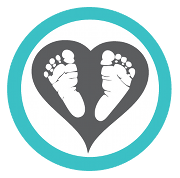 You may have heard that there is a wide variety of prenatal vitamins, both by prescription and over-the-counter. It can be overwhelming. The best prenatal vitamin for you will depend on several factors, such as any special health needs or how much you want to spend.
You may have heard that there is a wide variety of prenatal vitamins, both by prescription and over-the-counter. It can be overwhelming. The best prenatal vitamin for you will depend on several factors, such as any special health needs or how much you want to spend.Is there a difference between various prenatal vitamins?
Click on the post title for a discussion on this topic. Of particular interest now is DHA which is an omega-3 fatty acid that appears to be important for brain, eye, and heart health. Some of the prenatal vitamins are adding this, sometimes in the form of a separate pill. This substance is sometimes lacking in the American diet so supplementing is a good idea.
Pregnancy-info.net says:
How can I get DHA (omega-3)?In the past decade or so, the importance of Omega 3 during pregnancy has been acknowledged. It is now known that Omega 3 actually plays a large role in the development and growth of your baby when it is in your uterus. Omega 3 helps to:
- build the brain
- form the retinas
- develop the nervous system
Omega 3 is also necessary for your own pregnancy health and well-being. Omega 3 helps to:
- reduce your chances of developing preeclampsia
- reduce your risk for postpartum depression
- minimize the chance of preterm labor
You can add extra omega-3 rich foods to your diet (olive oil, avocados, walnuts, beans are good sources). Fish is an excellent source, but concerns about mercury in fish make women reluctant to eat much of this. It is recommended that you avoid Tile Fish, King Mackerel, Swordfish and Shark (large fish more likely to have mercury contamination from the ocean). Other fish such as salmon, tuna, shellfish, pollock, etc. can be eaten with recommendations of up to 12 ounces/week for pregnant moms. Locally caught fish and albacore tuna should be limited to 6 ounces/week. Click here for more information on food sources.
- You can take a fish oil softgel available in bulk at Costco, pharmacies, etc. If you add this to your regular, generic prenatal vitamin you are getting the same benefit as a designer vitamin costing many times what it is worth. Marine algae (what fish eat) is often used for making the DHA supplements. This is the reason the fish is rich in the nutrient. So, your supplement may be made from this algae. Nursing mothers should continue to take fish oil or other DHA if not eating enough omega-3 rich foods. The baby will benefit through the breast milk.
- You can pay extra for a prenatal vitamin that includes this, but if you have PEHP insurance, brand names are not covered due to high costs. A generic vitamin is sufficient and there should be a generic equivalent.
- You can buy a private-label brand which includes DHA at Walmart or other mass marketers.
More information is available here. For fish consumption guidelines, click here.
























No comments:
Post a Comment
This blog only reviews comments before posting to avoid hijacking. We will respond to comments Mon-Thurs but we are closed Fri-Sun and legal holidays.